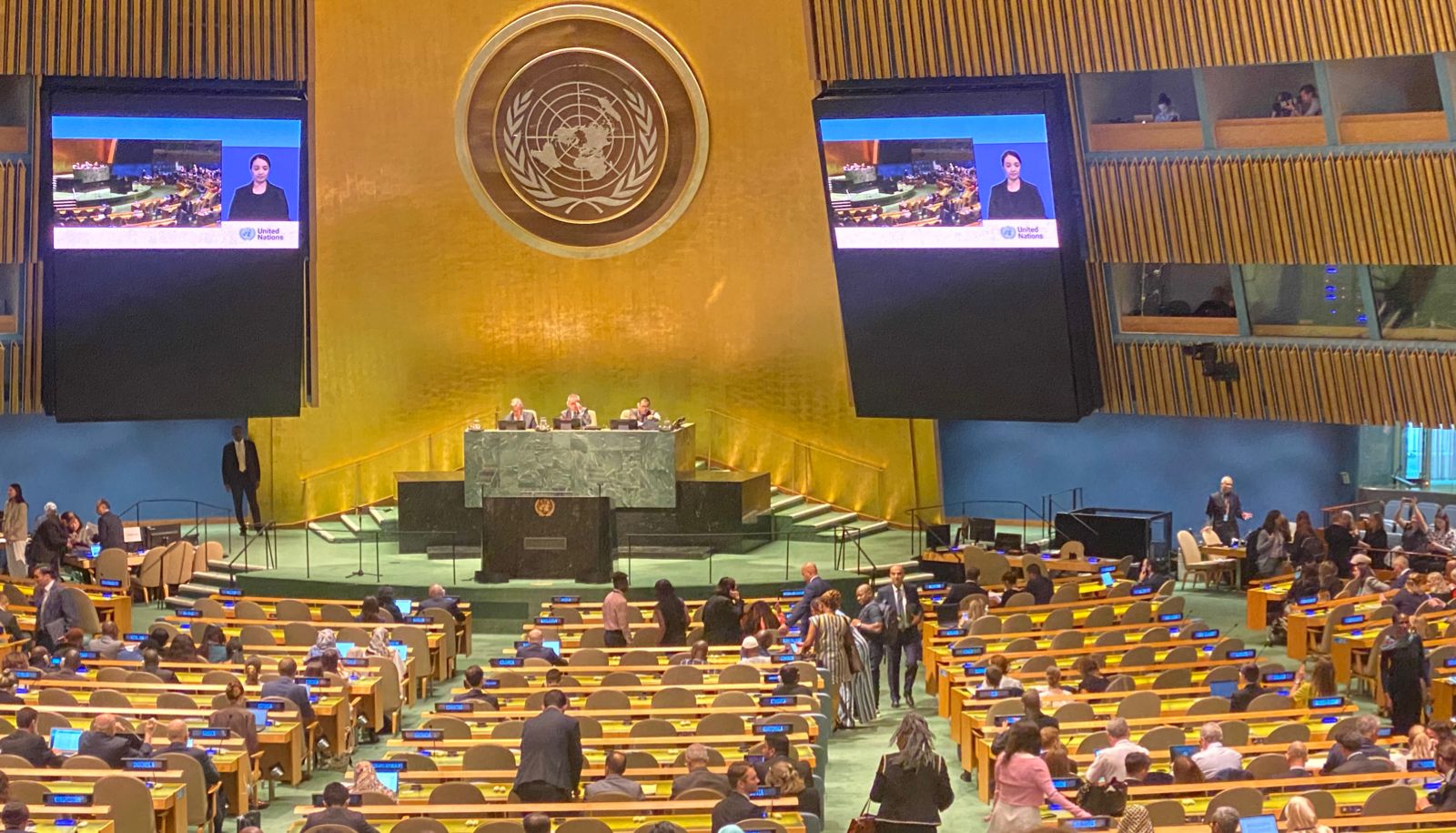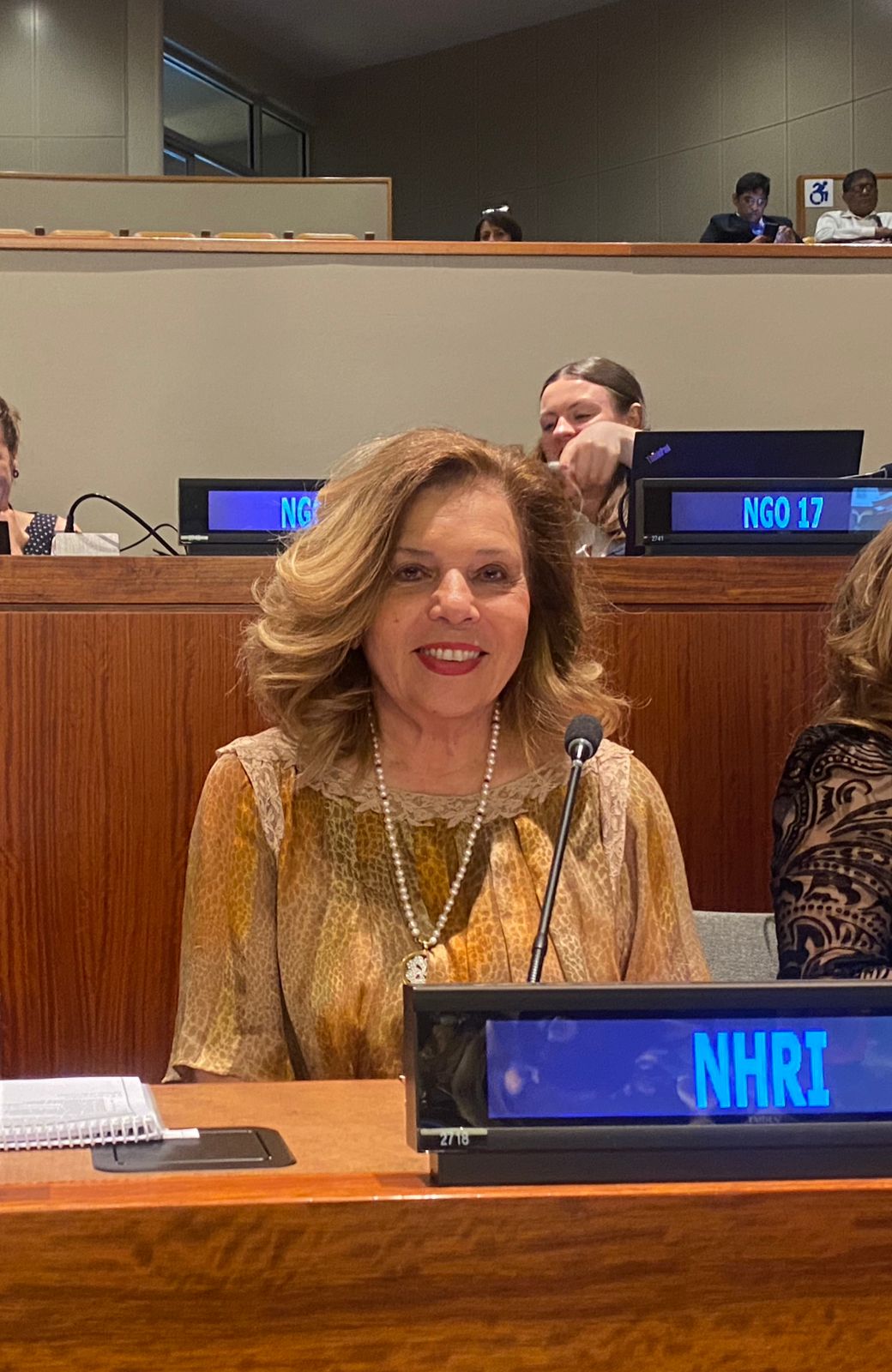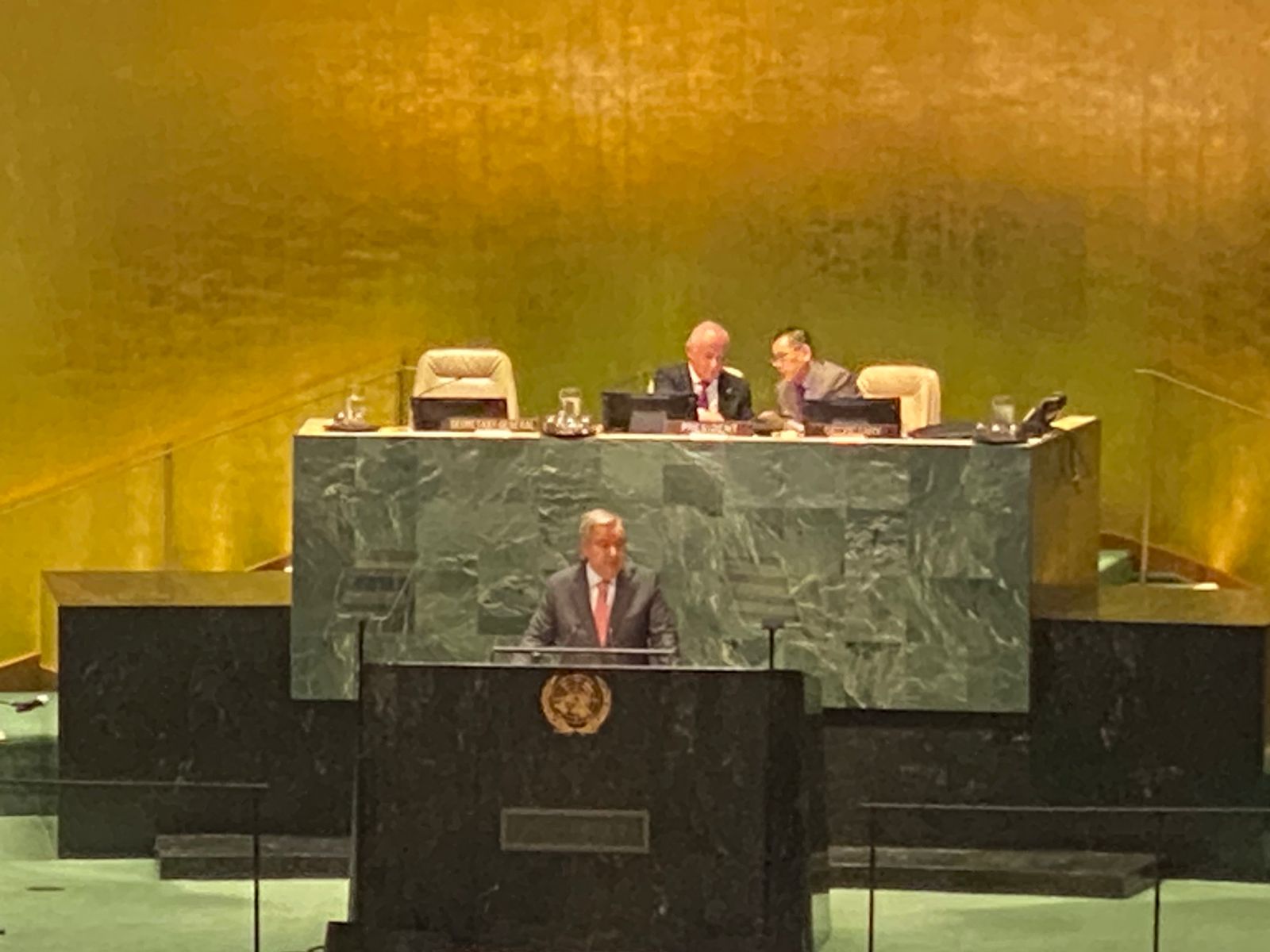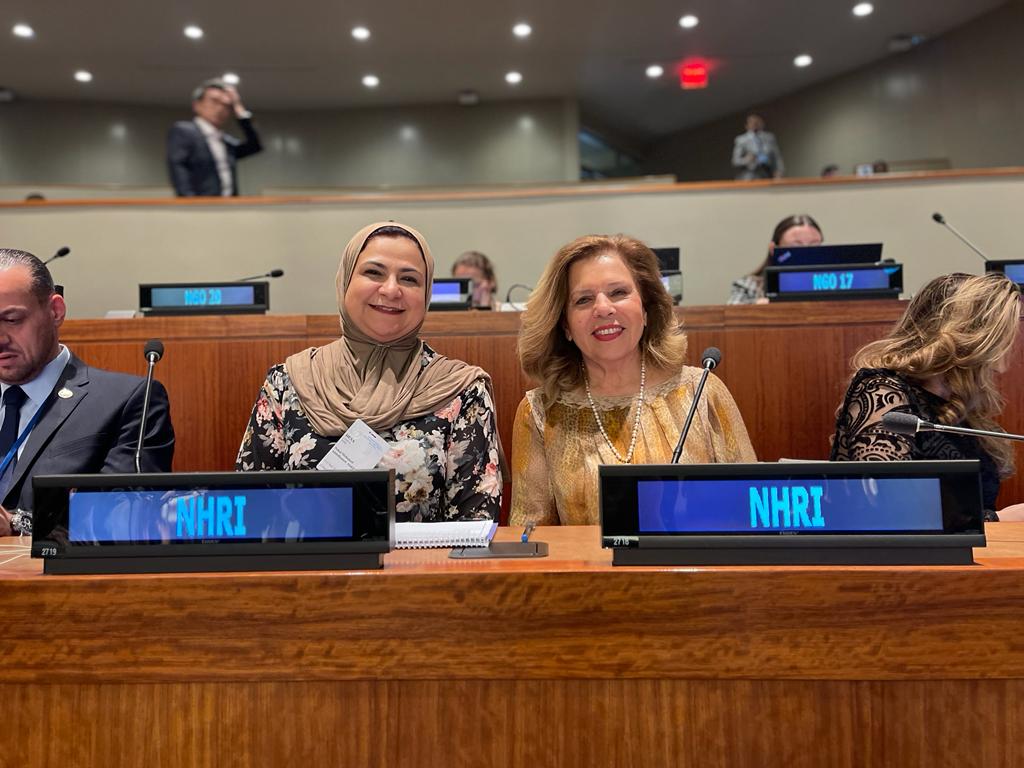The National Council for Human Rights participates in the Conference of the States Parties to the Convention on the Rights of Persons with Disabilities.
The National Council for Human Rights (NCHR) participates in the work of the sixteenth session of the Conference of the States Parties to the Convention on the Rights of Persons with Disabilities (COSP 16), which is currently being held at the United Nations headquarters in New York. The general discussion of the work of this session revolves around the topic: Harmonizing national policies and strategies with the Convention on the Rights of Persons People with Disabilities: The participating delegations present their practical experience in implementing the Convention, the achievements made and the challenges that are still outstanding, as countries participate with governmental delegations, civil societies, as well as national human rights institutions, and each of them presents the achievements and challenges.
Ambassador Moushira Khattab stated in the statement of NCHR before the conference focused on the Egyptian experience and the achievements that have been made in terms of fulfilling the rights of persons with disabilities, and that the Egyptian constitution has guaranteed a constitutional entitlement for persons with disabilities, and Egypt's commitment to the rights guaranteed by the international conventions in force in Egypt, It is supported by a presidential commitment, and she added that the Egyptian state has harmonized Egyptian legislation with the Convention on the Rights of Persons with Disabilities through Law No. 10 of 2018, the draft of which was developed through a community participatory process that began in 2010 and in which representatives of persons with disabilities and NGOs that express about their interests, and the law was approved in 2018, and that Egypt has made significant strides in fulfilling the rights of persons with disabilities, thanks to a presidential commitment that believes in the rights of persons with disabilities, which contributed to their participation in working life, reduced stigma, and raised awareness that they are holders of obligatory rights the performance.
As for the right of persons with disabilities to obtain reproductive health services and the right to fair access to cyberspace, Khattab asserted that there is no legal discrimination against persons with disabilities, but the limited available resources and pressures of infrastructure place people with disabilities, especially the most vulnerable groups such as women and children, in unequal situation. Also the global crises, including the Corona pandemic, the war in Ukraine and the repercussions of climate change, have contributed to exacerbating the current challenges and future threats.
Khattab added that the challenges ahead are the issuance of a building code and a code for means of transportation consistent with the rights of persons with disabilities, and that NCHR attaches high priority to ensuring the rights of persons with disabilities without any discrimination. Khattab called for intensifying international cooperation to provide the necessary resources, and to grant national institutions concerned with the rights of persons with disabilities the powers that enable them to carry out their mission, as well as national human rights institutions in order to be truly supportive of the enforcement of the rights of persons with disabilities.





 English
English
 Arabic
Arabic
 French
French



